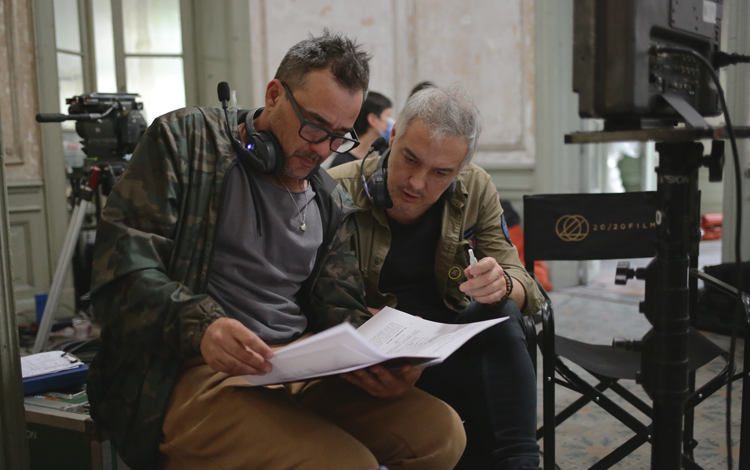ENGLISH
20/20 from Argentina: Latinos stories do not have to be only about death, dictatorships, drug traffickers and kidnapping
March 15, 2023
Maribel Ramos-Weiner

Patricio Alvarez Casado y Marcelo Burgos de 2020
20/20 Films is an Argentine production company born during the pandemic (and hence its name) and the creator of the documentary series El Comandante Fort on Star+. The series, a biopic about Ricardo Fort, heir to one of Argentina’s most important chocolate empires, combines documentary with fiction and was very well received by the public and critics. Patricio Álvarez Casado, founding partner of the production company together with director Marcelo Burgos, was the creator, director, and showrunner.
Eddie Fite was responsible for the journalistic research and the journalist and philosopher Tomás Balmaceda contributed with his perspective on gender issues. The scriptwriting team that joined Álvarez Casado included Juan José Becerra, Tamara Tenenbaum, and Nicolás Miguelez.
Álvarez Casado comes from advertising, where he was a partner of the renowned production company Rebolución, founded in 2005 together with Armando Bo. He was also a producer of successful films such as El último Elvis, La Calle de Los Pianistas, and Animal, among others.
Álvarez describes 20/20 as a creative boutique that develops projects with a unique artistic look and signature, flooded with emotions but understanding that they have to work for large audiences and for platforms.
“I believe it is between auteur cinema and old television and what the platforms are currently looking for: not so much television and not so much cinema,” he explained.
Currently, they are unpacking in Mexico and partnering with different production companies for specific projects, making pitches, closing rights agreements with some athletes for documentary series, and in June they are going to shoot a film in co-production with Chile, with a great local cast. In addition to other projects that they will announce soon.
“Our ideas are bold, aiming for authorship, and platforms are also looking for that,” he commented.
Regarding the boom in Latino production in the world, he said that there is still a lot of space for growth and that the rest of the world has to understand that Latinos are able to tell different stories not only about death, dictatorship, drug traffickers, and kidnapping. “I think we have to have the opportunity to talk about other issues as well.”
